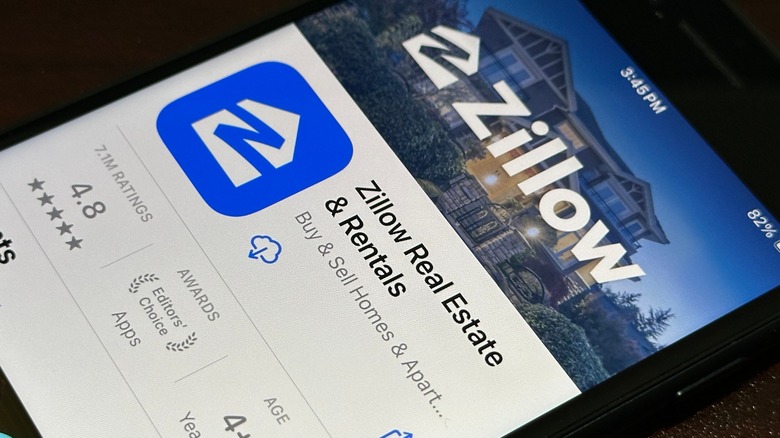Homes.com Vs Zillow: Why They're Not The Same & Which Is Better To Use
The process of buying a home comes with many, many decisions. This barrage of choices starts immediately with deciding which online platform to use to search for potential homes. While the choice was once primarily between online real estate giants Zillow and Realtor.com, there's now a new number-two competitor in town: Homes.com.
You may have seen their ads — especially during Superbowl LVIII — featuring big-name celebrities like Jeff Goldblum, Dan Levy, and Heidi Gardner. But does Homes.com's rapid growth mean that it's a better platform? Not necessarily. It all depends on what you're looking for.
Meanwhile, Zillow's name continues to be synonymous with online real estate listings as the company rakes in hundreds of millions of dollars each year. As Homes.com scrambles to take the lead in the market, ask yourself what's important to you. If you're simply looking for the most user-friendly features for consumers, Zillow may be the way to go. However, if the culture and impact of the company are of major importance to you, Homes.com may be your best choice. Let's break it down.
Zillow: heavy on features, light on ethics
For those who are looking for a simple, user-friendly way to search online for homes that are on the market in their desired area, Zillow is hard to beat. As the longstanding number-one online real estate platform, its app and website are both packed with user-friendly features like keyword searches, custom search areas, and filters for factors like pet-friendliness that make looking for a home on Zillow a breeze. If you're already overwhelmed with the process of finding and moving into a home, sticking with a well-known, easy-to-use platform like Zillow might be the best approach for you.
If you happen to be concerned with the culture and ethics of the companies you support, however, Zillow may not be the best fit. The company has been involved in several scandals, including a stint in the "iBuying" business, which buys up inexpensive homes and flips them for resale using instant automated cash offers. Most recently, the company paid $15 million to settle a lawsuit brought against it by its own investors for concealing an investigation into its co-marketing program that led to artificially inflated share prices. Zillow is also known for selling buyer leads to real estate agents who pay for its Premier Agent membership, a practice that often results in leads being given to someone who is not the listing agent of the property in question.
Homes.com: your listing, your lead (but fewer features)
If you're a person who tends to place their conscience above their user experience, Homes.com is likely to be a better choice of online real estate platform for you than Zillow. It is important to note that Homes.com does not offer quite as much convenience when using it to search for properties for sale. With some searching, the platform does have the ability to search using keywords but is missing filters for features like pet-friendliness. However, what the Zillow competitor lacks in user-friendliness, it makes up for in ethics.
Homes.com's parent company, CoStar, operates on the motto "Your Listing, Your Lead," promising real estate agents that they will always receive all buyer leads on the properties they've listed. Homes.com makes its money by offering listing agents the opportunity to pay for their properties to be pushed closer to the top of the platform's search results.
In the end, which online real estate platform you choose depends on what is most important to you and what you need to get through the buying process as unscathed as possible.


